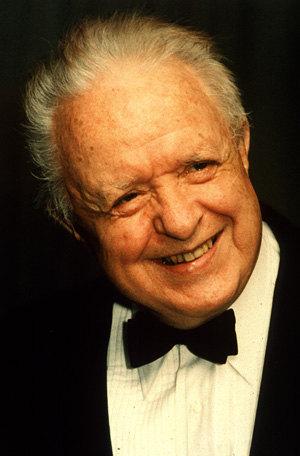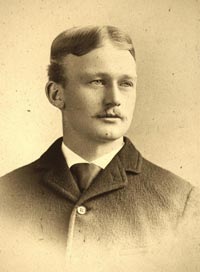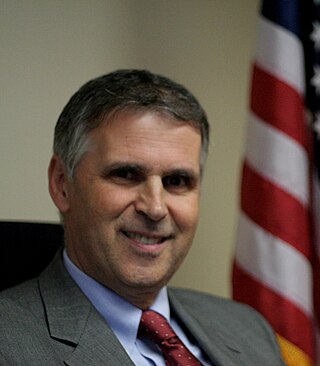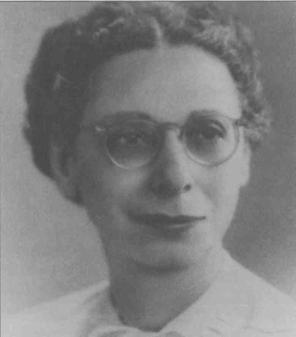
William Harrison Frist is an American physician, businessman, conservationist and policymaker who served as a United States Senator from Tennessee from 1995 to 2007. A member of the Republican Party, he also served as Senate Majority Leader from 2003 to 2007. Born in Nashville, Tennessee, Frist studied government and health care policy at Princeton University and earned a Doctor of Medicine degree from Harvard Medical School. He trained as a cardiothoracic transplant surgeon at Massachusetts General Hospital and Stanford University School of Medicine, and later founded the Vanderbilt Transplant Center. In 1994, he defeated incumbent Democratic Senator Jim Sasser. He pledged to only serve two terms.

Jesse Francis "Jeff" Bingaman Jr. is an American academic and retired politician who represented New Mexico in the United States Senate for 30 years, from 1983 to 2013. A member of the Democratic Party, he previously served as the 25th Attorney General of New Mexico from 1979 to 1983. During his time in the Senate, Bingaman served as Chairman of Committee Outreach for the Senate Democratic Caucus and was the longtime chair of the Senate Energy Committee.

Michael Dean Crapo is an American lawyer and politician serving as the senior United States senator from Idaho, a seat he has held since 1999. A member of the Republican Party, Crapo previously served as the U.S. representative for Idaho's 2nd congressional district from 1993 to 1999. He is the dean of Idaho's congressional delegation, having served since 1993.

Isaac Beverly Lake Jr. was an American jurist and politician, who served as chief justice of the North Carolina Supreme Court.

Peter Agre is an American physician, Nobel Laureate, and molecular biologist, Bloomberg Distinguished Professor at the Johns Hopkins Bloomberg School of Public Health and Johns Hopkins School of Medicine, and director of the Johns Hopkins Malaria Research Institute. In 2003, Agre and Roderick MacKinnon shared the 2003 Nobel Prize in Chemistry for "discoveries concerning channels in cell membranes." Agre was recognized for his discovery of aquaporin water channels. Aquaporins are water-channel proteins that move water molecules through the cell membrane. In 2009, Agre was elected president of the American Association for the Advancement of Science (AAAS) and became active in science diplomacy.

Atul Atmaram Gawande is an American surgeon, writer, and public health researcher. He practices general and endocrine surgery at Brigham and Women's Hospital in Boston, Massachusetts. He is a professor in the Department of Health Policy and Management at the Harvard T.H. Chan School of Public Health and the Samuel O. Thier Professor of Surgery at Harvard Medical School. In public health, he is executive director of Ariadne Labs, a joint center for health systems innovation, and chairman of Lifebox, a nonprofit that works on reducing deaths in surgery globally. On June 20, 2018, Gawande was named the CEO of healthcare venture Haven, owned by Amazon, Berkshire Hathaway, and JP Morgan Chase and stepped down as CEO in May 2020, remaining as executive chairman while the organization sought a new CEO.
Patient safety is a discipline that emphasizes safety in health care through the prevention, reduction, reporting and analysis of error and other types of unnecessary harm that often lead to adverse patient events. The frequency and magnitude of avoidable adverse events, often known as patient safety incidents, experienced by patients was not well known until the 1990s, when multiple countries reported significant numbers of patients harmed and killed by medical errors. Recognizing that healthcare errors impact 1 in every 10 patients around the world, the World Health Organization (WHO) calls patient safety an endemic concern. Indeed, patient safety has emerged as a distinct healthcare discipline supported by an immature yet developing scientific framework. There is a significant transdisciplinary body of theoretical and research literature that informs the science of patient safety with mobile health apps being a growing area of research.
A Patient Safety Organization (PSO) is a group, institution, or association that improves medical care by reducing medical errors. Common functions of patient safety organizations are data collection and analysis, reporting, education, funding, and advocacy. A PSO differs from a Federally designed Patient Safety Organization (PSO), which provides health care providers in the U.S. privilege and confidentiality protections for efforts to improve patient safety and the quality of patient care delivery

Bernard Lown was a Lithuanian-American cardiologist and inventor. Lown was the original developer of the direct current defibrillator for cardiac resuscitation, and the cardioverter for correcting rapid disordered heart rhythms. He introduced a new use for the drug lidocaine to control heartbeat disturbances.

Jonathan Evan Fielding is a board-certified physician in both Pediatrics and Preventive Medicine, and the former director and health officer of the Los Angeles County Department of Public Health. At UCLA, he is a Distinguished Professor in the Fielding School of Public Health and a Professor in the David Geffen School of Medicine. He is the founder and co-director of the UCLA Center for Health Advancement in the UCLA Fielding School of Public Health.

R Adams Cowley was an American surgeon considered a pioneer in emergency medicine and the treatment of shock trauma. Called the "Father of Trauma Medicine", he was the founder of the United States' first trauma center at the University of Maryland in 1958, after the US Army awarded him $100,000 to study shock in people—the first award of its kind in the United States. The trauma unit at first consisted of two beds, and was later expanded to four beds. Many people called the four-bed unit the "death lab." Cowley was the creator of the "Golden Hour" concept, the period of 60 minutes or less following injury when immediate definitive care is crucial to a trauma patient's survival. He was a leader in the use of helicopters for medical evacuations of civilians, beginning in 1969, and founded the Society of Thoracic Surgeons. He also founded the nation's first statewide EMS system, called MIEMSS by Executive Order of Maryland's Governor Mandel, 1972, as well as the National Study Center for Trauma and EMS, enacted by Congress in 1986 and signed into law by President Ronald Reagan. He is also known for being one of the first surgeons to perform open-heart surgery and invented both a surgical clamp that bears his name and the prototype pacemaker that was used by Dwight D. Eisenhower.

Ernest Amory Codman, M.D., was an American surgeon who made contributions to anaesthesiology, radiology, duodenal ulcer surgery, orthopaedic oncology, shoulder surgery, and the study of medical outcomes.
John Dunham States was an American orthopedic surgeon who dedicated his career to improving automotive safety. Born in Rochester, New York, he was a graduate of the University of Rochester, and received his M.D. from Harvard Medical School. He was a professor of Orthopedic Surgery at the University of Rochester from 1976 to 1990.

Donald M. Berwick is a former Administrator of the Centers for Medicare and Medicaid Services (CMS). Prior to his work in the administration, he was President and Chief Executive Officer of the Institute for Healthcare Improvement a not-for-profit organization.

E. Andrew Balas M.D., Ph.D. is a fellow of the American College of Medical Informatics and elected member of the European Academy of Sciences and Arts. He serves as Professor at Augusta University. Balas is Vice President of the Friends of the National Library of Medicine.
Health information technology (HIT) is health technology, particularly information technology, applied to health and health care. It supports health information management across computerized systems and the secure exchange of health information between consumers, providers, payers, and quality monitors. Based on a 2008 report on a small series of studies conducted at four sites that provide ambulatory care – three U.S. medical centers and one in the Netherlands, the use of electronic health records (EHRs) was viewed as the most promising tool for improving the overall quality, safety and efficiency of the health delivery system.

Donald L. Weaver is an American physician. He is a rear admiral in the United States Public Health Service Commissioned Corps and public health administrator who served as the acting Surgeon General of the United States. Weaver succeeded Steven K. Galson in October 2009, in expectation of a holdup by the United States Senate in confirming Regina Benjamin as surgeon general. Before being appointed as Acting Surgeon General, he served as the deputy associate administrator for primary health care in the Health Resources and Services Administration.

Bessie Louise Moses (1893-1965) was a U.S. gynecologist and obstetrician who advocated birth control practices for women.

Robert M. "Bob" Wachter is an academic physician and author. He is on the faculty of University of California, San Francisco, where he is chairman of the Department of Medicine, the Lynne and Marc Benioff Endowed Chair in Hospital Medicine, and the Holly Smith Distinguished Professor in Science and Medicine. He is generally regarded as the academic leader of the hospitalist movement, the fastest growing specialty in the history of modern medicine. He and a colleague, Lee Goldman, are known for coining the term "hospitalist" in a 1996 New England Journal of Medicine article.

David Bates is an American-born physician, biomedical informatician, and professor, who is internationally renowned for his work regarding the use of health information technology (HIT) to improve the safety and quality of healthcare, in particular by using clinical decision support. Bates has done work in the area of medication safety. He began by describing the epidemiology of harm caused by medications, first in hospitalized patients and then in other settings such as the home and nursing homes. Subsequently, he demonstrated that by implementing computerized physician order entry (CPOE), medication safety could be dramatically improved in hospitals. This work led the Leapfrog Group to call CPOE one of the four changes that would most improve the safety of U.S. healthcare. It also helped hospitals to justify investing in electronic health records and in particular, CPOE. Throughout his career, Bates has published over 600 peer reviewed articles and is the most cited researcher in the fields of both patient safety and biomedical informatics, with an h-index of 115. In a 2013 analysis published by the European Journal of Clinical Investigation, he ranked among the top 400 living biomedical researchers of any type. He is currently editor of the Journal of Patient Safety.














